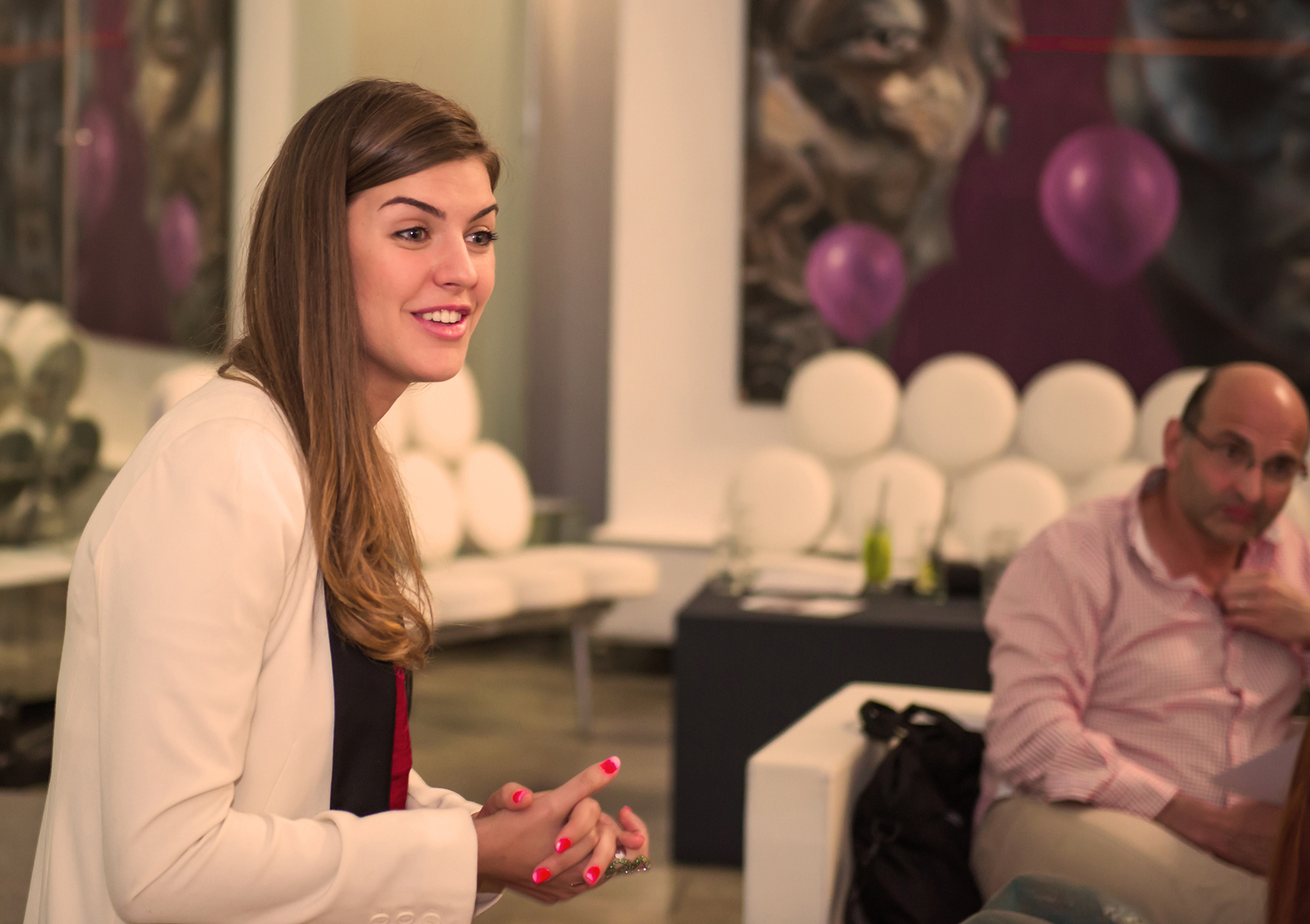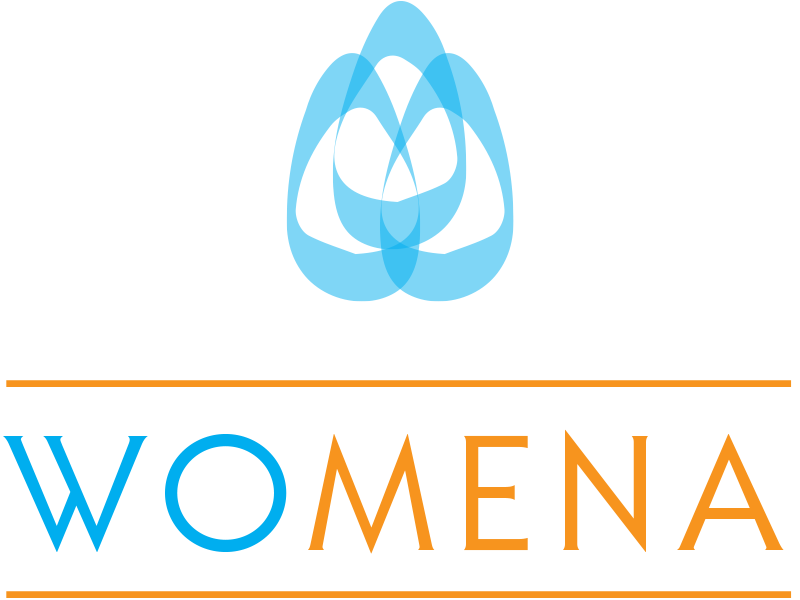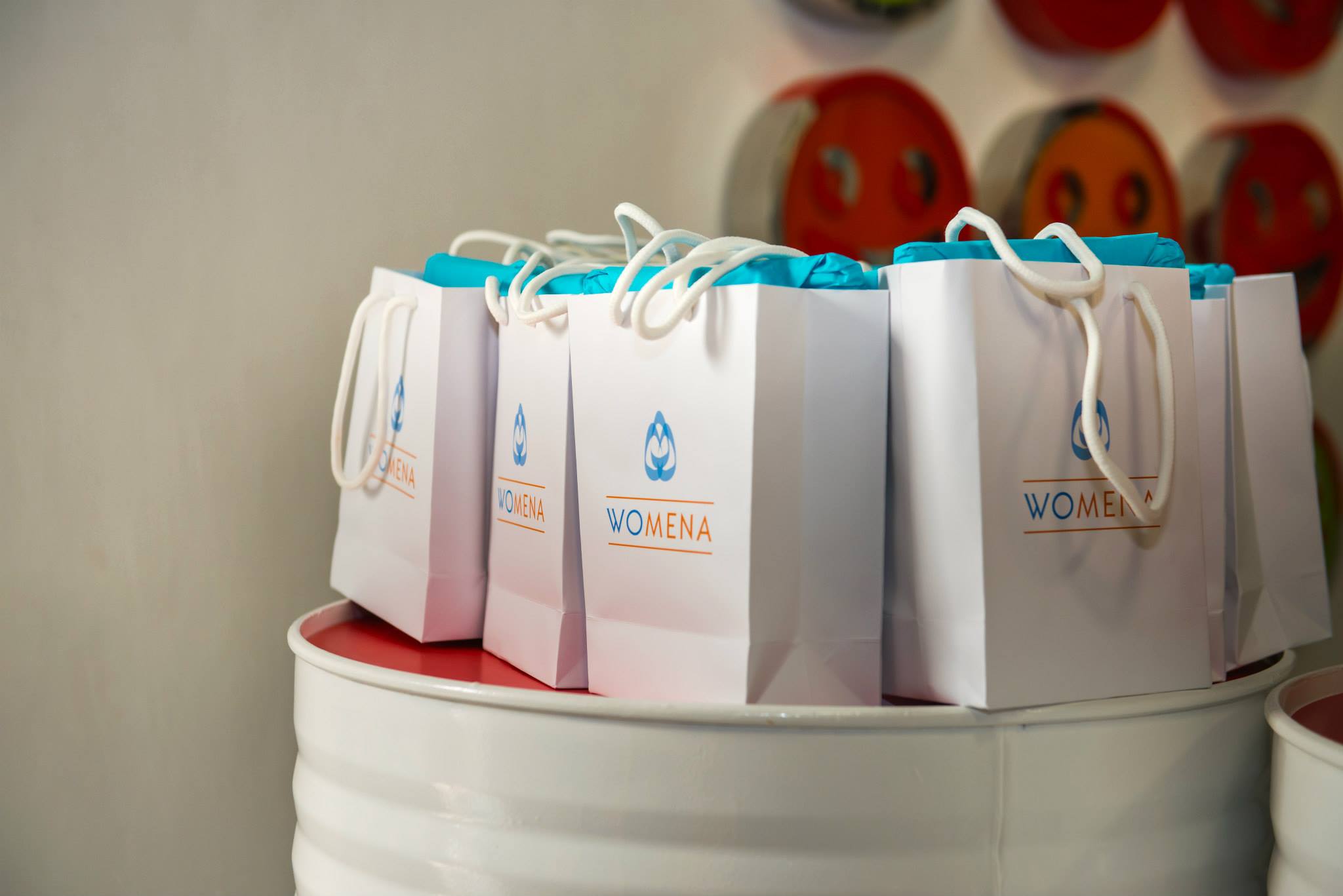Angel investors fly high with WOMENA
Women have long been known to control much of family finances, and wealthy women often play important roles as philanthropists and volunteers in their communities. But what isn’t always recognized, especially in the Middle East, is the direct role high-net-worth women can play in investing. One group is working to remedy this by investing in women who will invest in startups—helping female angels spread their wings, and raising up both entrepreneurs and investors in a diverse and growing economy. Launched in November 2014, WOMENA is the MENA region’s first all-female investment group. The group serves as a connection between angel investors and startups, as well as an educational community where members can learn more about seed investment and their potential role in the economy.
Through education, networking, vetting startups and mentoring; WOMENA guides women angel investors through the process of investing.
Middle East Investment Landscape
WOMENA launched during a time of impressive growth of the entrepreneurial and startup ecosystem in the Middle East. Only a few years ago, there was very little investment in innovation and entrepreneurship but in the last couple of years, this growth has begun to explode.
Despite growth in the region, barriers remain for both investors and entrepreneurs. Possible investment funds are much more limited in size and there is a large funding gap past an investment round of $500,000 that needs to be addressed.
But it’s not all doom and gloom. As the infographic below shows, the number of investments more than tripled between 2009 and 2012, and the vast majority of investors expect to invest in the region in the next couple of years.
Women have an important role to play in the Middle East investment landscape, and WOMENA is positioning itself as an avenue for women to become involved. With case studies like Springboard, there is consistent evidence that women can made a significant impact on the landscape.
Making investing accessible
Womena’s cofounders, Elissa Freiha and Chantalle Dumonceaux, certainly know about education and research. From their early days of collaboration, Freiha and Dumonceaux knew they wanted to create something to fill a need in the investing community. They found there was a lack of a platform for women to invest in startup companies and to play a direct role in growing the economy.
A lack of education—combined with being outnumbered in a field that is predominantly male, and often feeling too intimidated to ask many questions—left many women out of investing circles completely. Freiha and Dumonceaux wanted to forge a way to make investing accessible to women—and to utilize women as the indispensable member of the economy they knew them to be.
WOMENA: Innovation, Investment and Inclusion
Their solution was to serve as a facilitator between high-net-worth women who were interested in angel investing, and startup businesses in the Middle East that had high potential. WOMENA discovers entrepreneurs who need funds to grow their businesses. They research the companies and interview the entrepreneurs to determine the viability of the businesses, and once a month they host a meeting in which two or three startups pitch to WOMENA's investors. The meetings are held in inviting locales like an art gallery, entrepreneurship center and a garden, but they're far from casual meetings.
Perhaps most importantly, WOMENA aims to make investing the inspirational, fun, connection-driven, human experience they know it can be.
Angel investors
WOMENA members are proactive women who want to impact their community and be involved in economic growth. The organization must invite each investor to join, so it's a select and elite group: Members must have the funds to withstand the risk of investment, and they must pay an annual membership fee and commit to a minimum investment. But most of all WOMENA looks for potential investors to be excited and motivated to use their resources—financial, networking and personal—to bolster the economy and encourage entrepreneurs.
Members attend meetings where pre-screened entrepreneurs present their businesses for funding, after which WOMENA facilitates the entire investment process from deal source to deal close while educating members with individual and group coaching.
The more a member invests in presenting companies, the more value they get out of their membership. Members are asked to invest in at least one company per year. The minimum ticket is $5,000 USD (approximately 18,000 AED). It is suggested that members make three to five investments per year to diversify their portfolios and mitigate risk. In the first year of membership, members are not required to invest. After the first year, WOMENA requests that members utilize their membership to the fullest extent possible and participate in at least one investment per year.
Entrepreneurs
Unlike angel investors, WOMENA welcomes entrepreneurs who are men or women, but they have stringent standards for who they work with—all aimed at nurturing the startup ecosystem and each member of their process.
Entrepreneurs receive access to industry leaders, start-up service providers and other crucial contacts for fledgling companies. WOMENA is looking for companies that are based in the MENA region and are raising $150,000 to $750,000 USD (550,000 – 2,750,000 AED) to sustain them for twelve to eighteen months. Among other qualities the group seeks are companies that are highly scalable and innovative and those that solve a big problem in an underserved market.
Entrepreneurs can find an application form online. Once WOMENA receives the initial application, they will ask for more information and set up a phone call to discuss the company and conduct initial due diligence. Once this is complete, entrepreneurs will be invited to apply. Approximately 5 percent of applicants are selected to present in front of members.
WOMENA seeks businesses that can multiply an investment by a factor of ten over a five-year period. Companies that fit the bill tend to be in fields including ecommerce, software, life sciences, telecommunication, energy, wholesale services and retail services.
Making connections, growing businesses
WOMENA offers more to entrepreneurs than funding. The organization believes in more than funding: They operate on the conviction that through investment in the right entrepreneurs and startups, investors—including women—can help create jobs, promote economic growth, and make a difference. This conviction translates to devotion from the angel investors that takes many forms.
Members of the group have networks and resources they use to help new companies. Collectively, members can help entrepreneurs with business development, relationships with suppliers and distributors, marketing, finding employees, strategy and almost any other resources or network needed in the region. These are more than social gatherings. They're movements.
Investors receive more than facilitated deals, too. In partnership with financial institutions, corporates, and development organizations, WOMENA hosts half-day workshops for high-net-worth women and other aspiring angel investors covering all facets of angel investment. To help foster the startup ecosystem, WOMENA also provides quarterly half-day workshops to educate entrepreneurs on fundraising.
Ladies Who Launch
The platform got its official start November 1, 2014, when almost 50 leading women from across the Middle East gathered in Dubai to celebrate the launch of WOMENA at their inaugural event, “Ladies Who Launch.” The event had guests travelling from as far away as Silicon Valley and Turkey, from many different industry sectors and cultures.
The launch was followed shortly by the first pitch meeting December 10, where Kamal Hassan and Bern Shen also gave short presentations to members on angel investing; and companies Melltoo, Feesheh and Eventtus presented to members. Within a few weeks, Melltoo had received an investment.
A second pitch meeting was held January 24 at the Art Sawa Gallery in Al Quoz, Dubai; where members heard from AlemHealth and Apptuto. February 21 saw the their pitch meeting, also at the gallery, where attendees heard from Crowd Analyzer and MediaWave. The gathering drew record attendance despite a sandstorm sweeping the city. WOMENA, like the women it serves, had become an unflagging force.
The first woman angel
Even the organization’s logo has an entrepreneurial success story behind it: the number five three times, for 555 C.E., the birth year of Sayyida Khadija, or Khadija the Great.
Khadija came from a rich family in Saudi Arabia. A quick study in finance and business, she took over her father’s business after he passed away, started her own business, and flourished in a male-dominated economy and society. She was married three times and widowed twice, all the while maintaining her generosity and unflagging support for those around her, before she met Mohammed. It was a meeting of hearts and minds, and though Mohammed offered to support his wife financially, Khadija preferred to wed for his nobility, loyalty and love. She remained financially independent throughout their marriage—for 25 years—and became the Prophet Mohammed’s first follower.
It might be a legendary example, but Khadija’s story should sound familiar to many angel investors in the MENA region: She loved her friends and family, served her community, and ran a business empire. Her strengths as a woman in her community became her strengths as a businesswoman and investor.
Calling her “a true role model for the ages,” WOMENA’s website also notes: “She was a wife, a mother, a philanthropist, an entrepreneur, an angel investor and an inspiration.”
Working together; Freiha, Dumonceaux and countless other women from the region are inspirations for a new day—and a new way of seeing investing in the Middle East.
To learn more, visit WOMENA's website, like them on Facebook, or follow them on Twitter and Instagram.
#IAmVested in #TheStateOfWomen #YVEST











